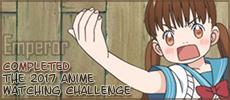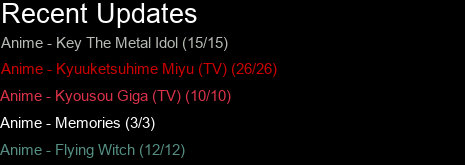It's a very difficult ending, and one that I hope isn't just one-dimensional by saying that life is either suffering or death. Are they just trying to be edgy and make the audience feel bad for Miyu's situation so they can have an angsty protagonist?
It's clear that they're saying that childhood is a kind of eternal bliss because of its innocence, but inevitably people grow up and have to confront the darkness in themselves and in others, the suffering of this world, and the bitterness of the soul. They use eggs to represent people because the darkness that is inside hatches upon maturation. I wonder if this is why they chose birds as the shinma villains this time. Or does that have something to do with the wind? (EDIT: According to the screenwriter's blog, he just chose birds to be the villains quite arbitrarily)
The wind is used to represent constant change and the impermanence of all things, even something as solid as a rock. They're also saying that there is no reason for destiny. There is no why. Ok, so what point are you trying to make?
"-But he soon took off again. He's always like that. He never stays home with us. He is really very busy. But I don't mind. The winds call your father. You know, when the winds blow, all the birds get very noisy? No matter how often you shoo the birds away they come right back. "
I wonder if this is just talking about how her father is defending her from the birds and/or how he's compelled by the winds of destiny.
Laava is Miyu's means of choosing how and when she dies to free herself from destiny and he's referred to as a bird, albeit a heretical one.
The only argument the show might be making that speaks to something positive is that Miyu is at least taking a little bit of control by choosing her death. It seems she also refuses to cross the river, which I'm taking to signify that she refuses to go into a land of peace by regression. In this show, both death at the end of your life and your childhood represent a land of undisturbed peace, and Miyu rejects both of them.
There's also this bit about Miyu's blood relating to her fire, and in turn her fire is related to her emotions. The birds cannot be harmed by blades, only fire. Don't know if they're trying to say something about living with passion.
"So, I'm alive today because I'm dead, is that right?" This makes no sense. Perhaps this is referring to her awakening, and how her old self figuratively died.
I think the lyrics to the ending song provide some clues:
1. Let us prick a temari
A perfectly round temari
A warm temari
Whose? (Whose?)
Yours? (Mine?)
Mine? (Yours?)
The red world is full of temari
2. Let us prick a temari
A perfectly round what?
A lonely heart
Whose? (Whose?)
Yours? (Mine?)
Mine? (Yours?)
Perfectly round, rolly-rolly teary eyes
3. Let us prick a temari
A perfectly round what?
A precious heart
Whose? (Whose?)
Yours? (Mine?)
Mine? (Yours?)
A face fallen to dreaming of catch-the-child.
Whose? (Whose?)
Yours? (Mine?)
Mine? (Yours?)
Perfectly round, rolling
Where do you go? (I don't know)
What do you pursue? (I don't know)
What do you want? (I want eternity)
The roundness here can refer to the perfection of childhood or it can refer to the cyclical nature of life, death, and destiny. The last three lines seem to describe Yaobikuni, who didn't even know what she was living for, but still wanted immortality. There's something purposeless about something that's eternal, like an eternal yearning for something or not having anything to strive towards due to immortality. It's clear Miyu doesn't know if she wants to die or to live and she doesn't seem to care.
The question is, what prompts her to embrace life in the end?
So apparently in the OVA (according to the Wiki), Miyu's father loses all his zest for life because he attains immortality. Perhaps Miyu's line "I'm alive today because I'm dead" refers to her willingness to live because she knows she'll die eventually. Maybe that's why there are always the birds there trying to kill the guardian and can only be eliminated by flame--- she's warding off death through her fire but it is also the constant threat of death that keeps her living.
|










